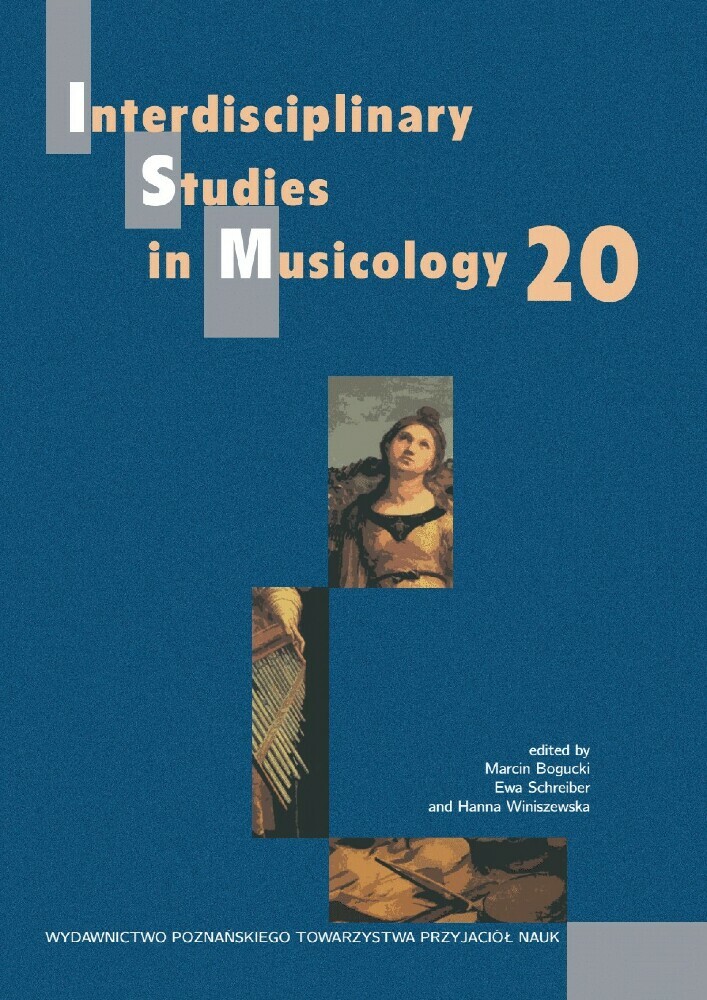Abstrakt
Sofia Gubaidulina is one of the most important composers living today. Among her many works acknowledged and awarded prizes on the international forum, the diptych St John Passion and St John Easter [The Resurrection of Christ according to St John], the opus magnum of that outstanding Russian composer, occupies a special place. This work focuses the most important features of her music, such as a profound theological message based on a compilation of fragments from the Old Testament, Gospels and the Apocalypse of St John, as well as her musical rootedness in the cultural tradition of the churches of both East and West. Gubaidulina adapts the achievements of the artistic avant-garde in new and original ways, while at the same time she is an ardent champion of traditional universal values grounded in the message of the Bible and Christian cultural tradition. This paper presents St John Passion by Sofia Gubaidulina in the context of its theological and intercultural dialogue, as well as attempting to characterise the phenomenon represented by this composer, who raises anew reflection on the fate of humankind in the context of existential questions, while remaining faithful to the idea of high art, exquisite and open to various understandings of the idea of beauty.
Bibliografia
Anderson, M. (2003). From the BBC Proms Festival, (B. Bolesławska, Transl). In Książka programowa 46. Międzynarodowego Festiwalu Muzyki Współczesnej Warszawska Jesień, [Programme Book 46 of the Warsaw Autumn Internation Festival of Contemporary Music, 2003] (pp. 262-265). Warszawa: [Warszawska Jesień].
Cichy, D., & Stochniol, M. (2008). Między Ewangelią a ciągiem Fibonacciego [Between the Gospel and Fibonacci’s Sequence]. Ruch Muzyczny, 2: 6.
Gavin, B. (Director). (1990). Fire and the Rose, Portrait of Sofia Gubaidulina [Film]. BBC.
Gubaidulina, S. (2002). In meinem Ende liegt der Anfang zu meinem Stück Johannes-Ostern. Musiktexte, 93: 25-26.
Książka programowa 46. Międzynarodowego Festiwalu Muzyki Współczesnej Warszawska Jesień, 2003. [Programme Book 46 of the Warsaw Autumn Internation Festival of Contemporary Music, 2003] (pp. 260-265).Warszawa: [Warszawska Jesień].
Evdokimov, P. (2003). Prawosławie [Orthodoxy], (J. Klinger, Trans.). Warszawa: Instytut Wydawniczy PAX.
Lukomsky, V. (1998) ‘The Eucharist in My Fantasy’: Interview with Sofia Gubaidulina. Tempo. New Series, 206: 29–35.
Pociej, B. (2004). Duchowość i zakorzenienie [Spirituality and rootedness]. In K. Droba, T. Malecka & K. Szwajgier, (Eds.), Duchowość Europy Środkowej i Wschodniej [Spirituality in Central and Eastern Europe] (pp. 41-53). Kraków: Akademia Muzyczna w Krakowie.
Redepenning, D. (2002). Passion und Aufersteung. Sofia Gubaidulinas Zyklus Johannes-Passion und Johannes-Ostern. Musik-Texte, 93: 27–35.
Schmeltz, P. J. (2009). Such Freedom, if only musical. Unofficial Soviet Music during the Thaw. New York: Oxford University Press.

